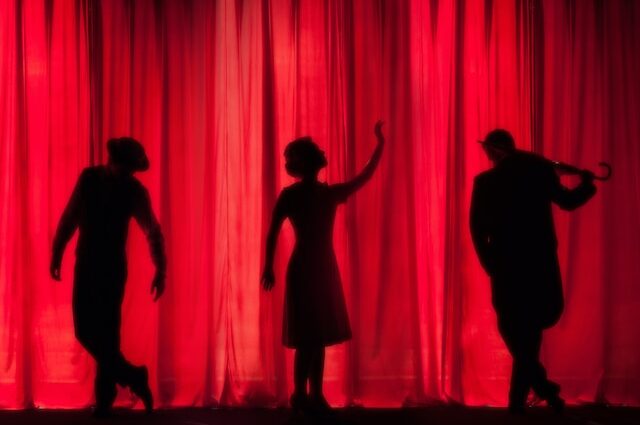Isabelle Raikes
British theatre has always been renowned as a place for self-expression, performance and a good time for both actors and audiences alike. But how fine is the line between supporting and spoiling a show?
Recently, a touring production of The Bodyguard stage show was shut down early in Manchester after reports of rowdiness from the crowd. Attendees of the show reported that the first half was temporarily paused after disruptive audience sing-alongs but was later resumed. This behaviour persisted into the latter half of the production which ultimately led to two women being forcibly removed, with video footage of this shared online, followed by the whole crowd being evacuated from the theatre by police. The show ended ten minutes early.
The Response
Singer and actress Melody Thornton, a former Pussycat Doll and the lead of the show, took to her Instagram stories to apologise to the audience for how the night unfolded. She said: “I respect that you paid your money and I am so grateful to everyone who respects the people on stage who want to give you a beautiful show. For everything that happened tonight, I don’t have all of the details, I just am very, very sorry that we couldn’t finish the show.”
People who attended the show took to social media to express their disappointment at what had occurred, with one Twitter user condemning “the arrogance and disrespect” they had witnessed.
I’m new to the world of theatre. But sad and disappointed tonight at the state of some peoples arrogance and disrespect while at a show.
Completely ruined #TheBodyguard, singing over the actors, to the point of them cancelling the show & police being called 🤦♂️😢 #Manchester pic.twitter.com/6pacRPKdqs
— Karl Bradley (@KarlBradley_1) April 7, 2023
This incident has since sparked a whole host of discussion regarding what actually constitutes as correct theatre etiquette.
Theatre Etiquette
“In true British fashion, theatre etiquette is a concept that people are expected to and assumed to be familiar with”
The London Theatre defines theatre etiquette as a set of rules and expected behaviours when you step inside an auditorium. A set of rules that can be subjective from person to person, but with most agreeing on a collective list of what is deemed ‘normal’.
In true British fashion, theatre etiquette is a concept that people are expected to, and assumed to be familiar with- the small print of paying often extortionate prices to attend theatre productions. Factors on this list include arriving early to the show to ensure time for toilet and refreshment breaks; seating before the scheduled time; keeping talking to a minimum or only speaking during applause or through a whisper; and skipping out on ‘noisy’ snacks such as crisps or sweets with wrappers.
As a child, I was lucky enough to attend several productions due to my family’s love of theatre and experienced firsthand the unspoken list of rules regarding how you should behave. At every show I have been to, everyone else seems to subscribe to this, too.
A Question of Context?
This unspoken list differs depending on what type of show you go to. Pantomimes, for example, have always been a more light-hearted and informal form of comedic theatre that welcome more audience interaction. In this more relaxed atmosphere, with shows often aimed at children, singing and shouting is encouraged, albeit at the right times. A different set of theatre etiquette, per say.
In this context, the behaviour in question from The Bodyguard show may have been more expected, even if not welcomed. However, this was an award-winning musical performance with a Grammy-nominated star as the lead, so one can only imagine the amount of work and money that has gone into perfecting the show. To have it ruined by the very people paying to support it would bring on an understandable wave of disappointment.
As a passionate theatre fan, I know it would have ruined my night, too, if others in the audience were drowning out the talent of the actual performers.
Moving Forwards at the Theatre
I see theatre as a place for good fun, food and a drink or two – even a quiet sing-a-long has never hurt anybody.
In the wake of The Bodyguard incident, we might be inclined to consider banning singing or drinking in these contexts entirely. To do so, though, would be a mistake. The disrespectful actions of a few should not disrupt the experience and enjoyment of the many. Most people who go to the theatre know this, and indeed, incidents such as this are not common.
“I don’t believe an isolated incident such as this should lead to a fundamental upheaval of the British theatre experience.”
Everyone should be able to go to the theatre and experience the magic of seeing extremely talented people who have worked for years perform award-winning songs and scripts without unexpected disruptions. But, I don’t believe an isolated incident such as this should lead to a fundamental upheaval of the British theatre experience.
Many people respect and appreciate the performance without trying to become a part of it. Perhaps, in this instance, a select few simply needed to be reminded that just because you pay for a ticket, does not give you the right to become the main character.
Featured image courtesy of Kyle Head via Unsplash. Image license found here. No changes were made to this image.

